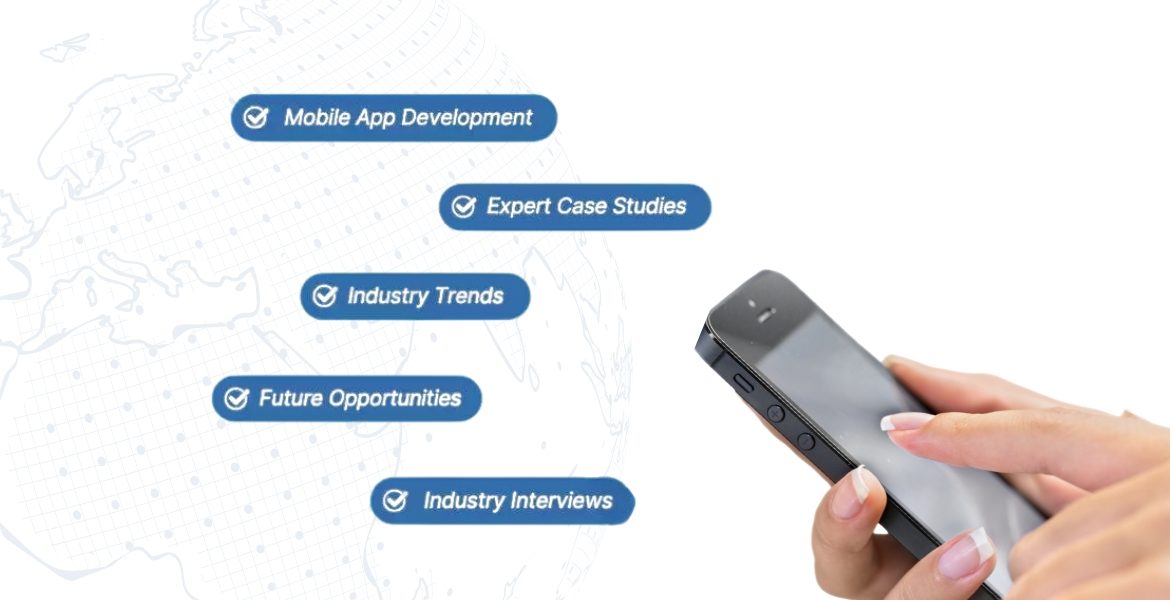The mobile app industry has expanded at an exponential rate over the last 10 years, altering how we live, work, and utilize technology. With millions of apps available across various platforms, it is imperative for developers and businesses to stay ahead of the app industry. New technology is continually in operation in Mobantica.
This blog article aims to provide you with professional opinions, pertinent facts, and incisive analysis to help you navigate the dynamic mobile app industry in 2024.
Industry Insights and Trends : The global mobile app market is expected to reach $613 billion by 2025, driven by the popularity of mobile-first solutions, advancements in app development technology, and increasing smartphone penetration. Emerging technologies like AI, machine learning, and 5G are revolutionizing apps by offering predictive analytics, enhanced security, and personalized experiences.
These technologies also enable more immersive AR and VR experiences due to faster download speeds and reduced latency. Post-pandemic, users prioritize strong security, personalization, and ease of use, making stringent data protection procedures essential for developers to meet privacy concerns and user expectations.
Key Statistics : Over 218 billion applications were downloaded from the App Store and Google Play in 2020, and it is predicted that global app revenue would surpass $935 billion by 2023.
The app categories with the fastest growth include those for gaming, business, and education. Users use mobile apps for 4.2 hours a day on average. While gaming apps have more engagement and earn most of their revenue from in-app sales and subscriptions, productivity applications have superior retention rates. Because 53% of consumers will stop using an app that takes longer than three seconds to load, app performance is very important.
For the best app performance and user happiness, key performance indicators (KPIs) including crash analytics, load times, and user feedback must be routinely monitored.
Best Practices for Mobile app development : The key to creating an engaging and easy-to-use user experience is to prioritize speed, ease of use, and simplicity. Get user input often, then make design updates to keep up with changing requirements. Put robust security measures in place, such as frequent audits, secure authentication, and encryption.
Respect data privacy rules like the CCPA and GDPR in order to safeguard sensitive information and foster user confidence. Minimize program size, make sure animations run smoothly, and cut down on load times to maximize performance.
To find and fix performance problems, use programs like Firebase Performance Monitoring and New Relic.

Expert Opinions and Case Studies : Ensures secure transmission of sensitive data between users and servers, preventing unauthorized access.
Future Predictions and Opportunities : As businesses implement mobile-first strategies, m-commerce is setting the standard for future mobile commerce. Blockchain, AR, and VR technologies promise to protect transactions and propel the expansion of mobile gaming. Emerging markets offer developers substantial prospects due to the growing use of smartphones and the need for localized applications.
Specializing in certain industries and utilizing data analytics can provide you a competitive advantage and insightful suggestions for improving your app.
Conclusion: The dynamic fast growing mobile app industry offers organizations and developers something for everyone. You can successfully navigate this environment and produce powerful, user-focused mobile applications by following up with the most recent trends, implementing best practices, and utilizing expert insights




